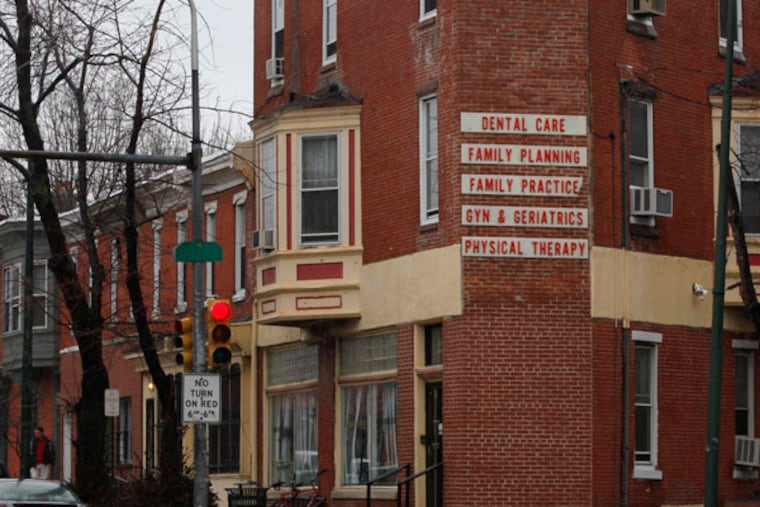Most Pa. clinics complying with new abortion law
Six months after Pennsylvania began regulating abortion clinics as outpatient surgery centers under a controversial new law, most clinics are complying - and complaining.

Six months after Pennsylvania began regulating abortion clinics as outpatient surgery centers under a controversial new law, most clinics are complying - and complaining.
The state lists 17 abortion providers, down from 22 a year ago. But only 13 of the remaining providers have been approved to do surgical abortions, a loss of five surgical facilities. The four remaining clinics are restricted to providing nonsurgical terminations using abortion pills.
Not all the losses can be attributed to the new law, Act 122. And it's too soon to tell if the measure will drive up prices and further reduce women's access to abortion, as critics have predicted.
But one impact is clear: The state Department of Health is taking its oversight duties seriously - something it did not do while physician Kermit Gosnell ran what Philadelphia's district attorney called "a house of horrors" in West Philadelphia. Beside working diligently to bring clinics into compliance, regulators have made repeated unannounced inspections.
Gosnell, arrested two years ago and now awaiting trial on charges of murdering newborn babies and a patient, became a rallying point for the antiabortion architects of Act 122. Opponents of the law pointed out that Gosnell operated with impunity for two decades, not because existing rules were lax but because the state didn't enforce them.
Around the country, legislatures have become the front lines in the nation's battle over abortion.
Abortion remains legal - Tuesday is the 40th anniversary of the U.S. Supreme Court's landmark Roe v. Wade decision - and violent attacks on abortion providers have subsided.
Yet in the last two years alone, state legislatures have enacted a record 135 abortion restrictions, according to the Guttmacher Institute, a reproductive-health research group that supports abortion rights.
Pennsylvania, Virginia, and Kansas are among states that have required abortion clinics doing surgery to meet the same medical and construction standards as other outpatient surgery centers.
The regulations say nothing about weeks of pregnancy or type of abortion procedure. The act, covering all outpatient surgery centers, was expanded to include abortion clinics.
The level of anesthesia determines how strictly clinics are classified. Sedation triggers more extensive regulation than local anesthesia, which numbs a limited area. (Anesthesia is not needed with abortion pills.)
Most first-trimester abortions - which account for more than 90 percent of all abortions in Pennsylvania - involve local anesthesia. But, depending on the patient's needs, the doctor may recommend sedation even for these simple procedures.
Clinics using only local anesthesia must be accredited by a nationally recognized agency.
To use sedation - regardless of whether the procedure is a colonoscopy, throat surgery, or abortion - the clinic must meet national health-facility construction standards, including: hospital-type floors, bathrooms, and heating/air-conditioning systems; separate rooms for dirty and sterilized instruments; and scrub sinks outside - not inside - operating rooms.
Pennsylvania regulators conceded that some rules were unnecessary. It exempted abortion clinics using sedation from having huge hospital-type elevators and 400-square-foot operating rooms.
But officials hung tough on other points, such as requiring recovery rooms to be supervised by registered nurses, not less-credentialed nurses.
One clinic with a stellar infection record got wiggle room on the location of scrub sinks - but had to install hands-free operating controls.
"This didn't enhance patient safety at all," said Dayle Steinberg, president of Planned Parenthood of Southeastern Pennsylvania, which spent $500,000 on renovations at two sites. "It was onerous and burdensome and costly."
State Rep. Dan Frankel, (D., Allegheny), who opposed Act 122, agreed: "Basically, this was a cookie-cutter piece of legislation used across the country to make abortion less accessible to women. Many [Pennsylvania] clinics have been able to comply, but at a very high cost, which at some point may translate into higher costs for services for women who can least afford it."
Countered Rep. Matt Baker (R., Tioga), "What I don't understand is this notion ... that the law is not concerned with women's health and safety. Reasonable, prudent individuals want to make sure [an abortion clinic] is a safe and sanitary place to go."
Baker noted that the state's latest annual abortion report - for 2011, before Act 122 took effect - showed that, while abortions declined 1.4 percent to 36,280, complications nearly doubled to 109. (Most complications stem from tissue left in the uterus; the 2011 complications rate remained far below 1 percent.)
Even though three providers have shut down in the last year, only one - Reproductive Health and Counseling Center in Chester City - was denied a license, even provisionally. The clinic is "looking at a change" of managers, said its lawyer, Susan Frietsche of the Women's Law Project.
One thing that hasn't changed: Pennsylvania's abortion providers remain concentrated in the Philadelphia and Pittsburgh areas.
Abortion Clinics In Southeast Pa.
Pennsylvania's latest abortion rules classify clinics based on their use of anesthesia. Those using sedation must meet the most stringent standards.
In Southeastern Pennsylvania, approved for:
Surgical abortion - sedation
Planned Parenthood, Locust Street, Philadelphia
Planned Parenthood, Comly Road, Philadelphia
Philadelphia Women's Center (provisional)
Surgical abortion - local anesthesia
Berger and Benjamin, Philadelphia
Planned Parenthood, Warminster
Planned Parenthood, West Chester
Use of abortion pills - no anesthesia
Drexel Ob-Gyn Associates at Feinstein
Planned Parenthood, Norristown
Reproductive Health and Counseling Center, Chester
Note: Abortions are also performed at hospitals.EndText
at 215-854-2720 or mmccullough@phillynews.com.